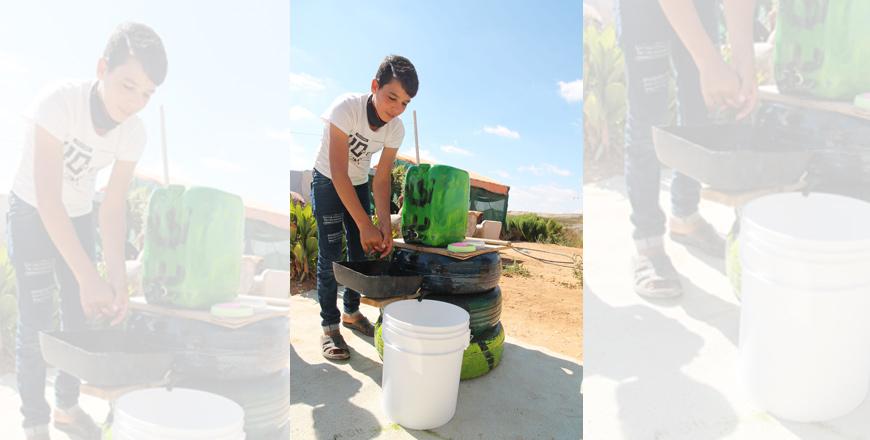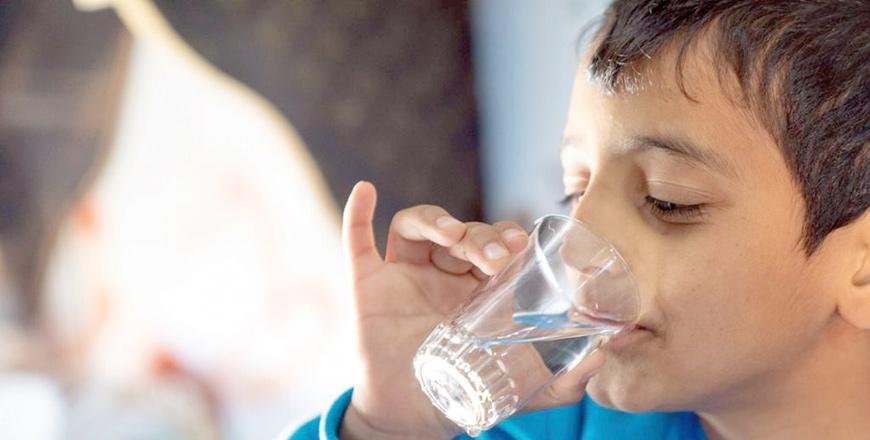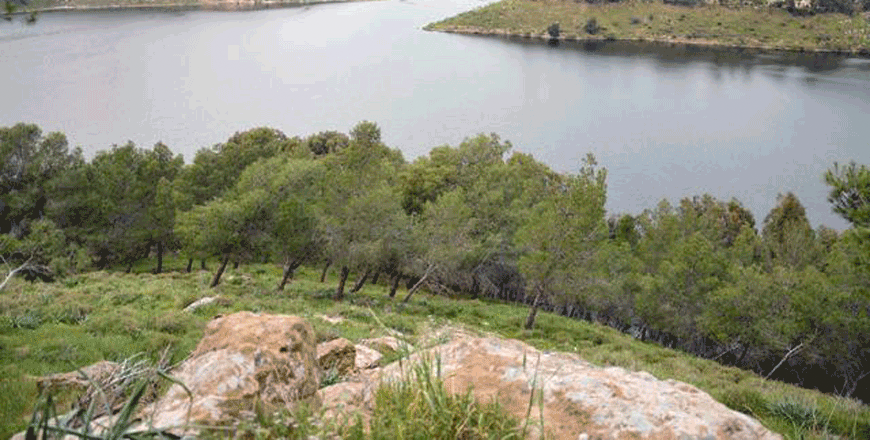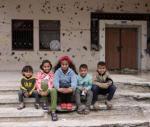You are here
UNICEF warns of impact of water scarcity on children’s well-being
By Batool Ghaith - Jul 12,2021 - Last updated at Jul 12,2021

Water scarcity impacts every aspect of life in Jordan and has a direct and detrimental impact on children’s health, development and wellbeing, according to UNICEF (Photo courtesy of UNICEF)
AMMAN — Water scarcity impacts every aspect of life in Jordan and has a direct and detrimental impact on children’s health, development and well-being, according to UNICEF.
Jordan is one of the most water scarce countries in the world in terms its water resources. The Kingdom only has an available annual water resource per capita of less than 100 m3, which is far below the internationally recognised water scarcity level of 500 m3, according to the UN agency.
Limited access to water means children are unable to practise important hygiene behaviours like handwashing. A shortage of water in schools impacts student enrolment, attendance and performance, particularly for girls, UNICEF stated.
UNICEF supports projects that are immediate, sustainable, and have a significant impact on water and environmental conservation. UNICEF aims to provide vulnerable communities with improved water systems and wastewater infrastructure to ensure people have access to safely managed, sustainable and climate resilient water and sanitation services, according to Chief of Water, Sanitation and Hygiene (WASH) at UNICEF Jordan, Benjamin Smith.
He said that UNICEF works in Azraq and Zaatari refugee camps to improve the quality of water supply and its equitable distribution.
The UN organisation provides Syrian refugees in camps and isolated areas with access to adequate quantities of safe water and appropriate sanitation facilities. UNICEF operates cost-effective and sustainable water and wastewater networks, improving the lives of over 70,000 refugee children and their families, he said.
To ensure water security for all, UNICEF supported the Ministry of Water and Irrigation to develop the new Sustainable Development Goal (SDG) 6 “Clean Water and Sanitation for All” and its monitoring and reporting framework, Smith said.
“The framework will help Jordan manage water security. It will strengthen the monitoring and reporting capabilities of the ministry and its partners and will foster cross-sectoral collaboration between government entities,” Smith told The Jordan Times.
He also noted that the framework establishes guidelines for data collection and management for various government agencies to help address the country’s water and sanitation challenges. The framework provides guidance and reporting requirements for each of the SDG6 indicators and a step-by-step methodology for effectively monitoring progress towards the SDG6 agenda.
Smith stated that water scarcity is the country’s greatest challenge to economic growth and development and will only be further magnified by climate change and other socioeconomic challenges.
“Climate change and increasing water demand has stretched Jordan’s water resources and supply systems beyond their design limits, with water demand increasing by an average of 10 per cent on a household level during the peak COVID-19 response,” Smith added.
The Middle East and North Africa (MENA) region has the greatest chance of all regions for economic loss from climate-related water scarcity, estimated at six to 14 per cent of GDP by 2050 (World Bank, 2016). Mitigating against the consequences of climate change is crucial to sustain socioeconomic development gains, he noted.
“UNICEF supports the government’s capacity to implement water and sanitation climate resilient interventions, including comprehensive assessment of climate risks to the water supply systems and management, piloting and scale up of climate resilient water safety plans, and detailed scientific studies to assess climate-related risks,” Smith stated.
In 2020 UNICEF provided close to 600,000 children and their families with access to safe water in refugee camps and water-scarce communities, he said.
“Donor support is key to continue improving the sustainability and cost effectiveness of WASH operations including the enhanced COVID-19 response operations,” Smith said.
UNICEF currently supports vulnerable youth in leading the country’s transition to a green economy through skills building, volunteer opportunities, WASH Innovation Hubs at universities and by encouraging youth engagement and entrepreneurship, such as Teenah and the government’s Inhad initiative, he said.
“To support efforts towards sustainable, efficient water and sanitation services, UNICEF and the Ministry of Water and Irrigation launched a mobile application to increase community awareness of water conservation initiatives, reduce water losses from leaks, and to facilitate and simplify the procedures of water and sanitation services,” Smith said.
Smith noted that the application will make it easier for families to manage their own water consumption and play an active role in reporting any leakages, helping preserve this critical resource for generations to come.
Related Articles
AMMAN — A new Climate Resilient Water Safety Plan (CRWSP) developed by UNICEF in collaboration with Jordan Water Company, Miyahuna is aimed
AMMAN — Being one of the driest countries in the world, Jordan faces many pressing environmental difficulties.Water scarcity affects every a
AMMAN — Secretary-General of the Ministry of Water and Irrigation Hisham Heisa, during a recent meeting in Beirut, chaired a committee taske

















